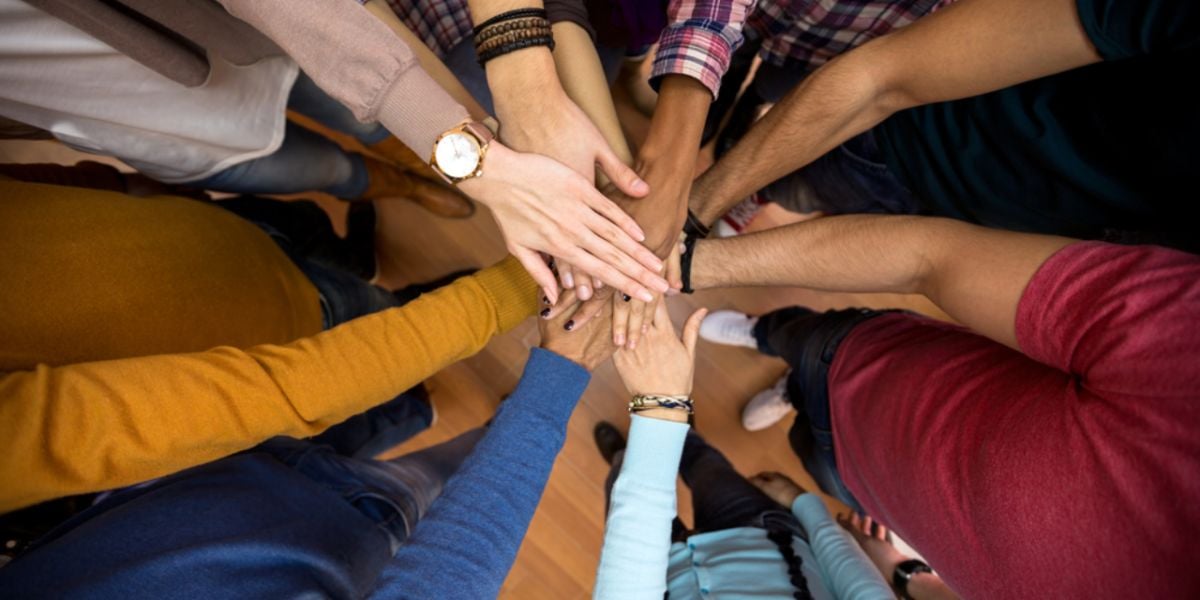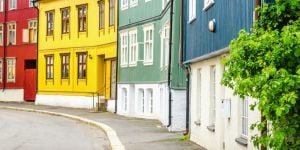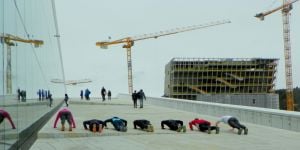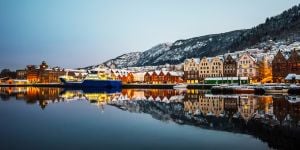
Norway is widely regarded as one of the most progressive countries in the world when it comes to human rights and equality. With a high value placed on fairness and social well-being, Norway has made significant strides in promoting diversity and inclusion. But is it truly as inclusive and welcoming as it claims? Let's explore Norwegian society, its challenges, and its successes in addressing the needs of minority communities.
How does Norway treat ethnic minorities?
The situation of ethnic minorities
Norway is undergoing significant demographic changes, primarily driven by increasing immigration. Ethnic minorities (immigrants and their descendants) now make up approximately 17% of the population. The primary groups of immigrants in Norway come from Somalia, Pakistan, Iraq, and Poland. Over the years, Norwegian society has become increasingly multicultural, with Oslo serving as a prime example of this diversity.
In this past half-century that has fast-tracked immigration and highlighted diversity, yet ethnic minorities continue to face numerous social and economic challenges. Their full inclusion is still a work in progress. For instance, access to employment and housing remains a significant issue, particularly for those of non-European origin.
Experiences of black and brown communities
Despite its reputation for openness and tolerance, Norway still grapples with racial discrimination. Visible minorities, especially black and brown individuals, face subtle discrimination — ranging from microaggressions in daily life to more overt forms of prejudice. In the workplace and society, these groups often encounter stigma, implicit biases, and inequalities.
Studies reveal that people of African or Asian descent struggle to access skilled positions, even when they possess the same qualifications as their European counterparts. Discrimination in hiring, often linked to perceived "non-Norwegian" names or physical differences, remains prevalent.
Representation in political and social institutions is also limited for these communities, impacting their access to social equality. Although Norwegian laws promote equality, cultural barriers continue to hinder full inclusion.
Support initiatives and organizations
The Norwegian government has implemented several inclusion policies and initiatives to combat racism and promote diversity. Anti-discrimination laws protect individuals from discrimination based on race, religion, and ethnic origin. Organizations like Antirasistisk Senter work actively to raise public awareness and provide active support to victims of racism.
Integration programs are also offered to newcomers, with a focus on facilitating their entry into the Norwegian labor market and society at large. These initiatives include language training and mentorship programs to help individuals better navigate Norwegian cultural norms.
Integration programs are also available for newcomers, with a focus on facilitating their entry into the Norwegian labor market and society. These initiatives include language training and mentorship programs to help individuals better navigate Norwegian cultural norms.
Is Norway safe for LGBTQ individuals?
Policies supporting LGBTQ rights
Norway has long been a pioneer in LGBTQ rights. Homosexuality was decriminalized in 1972, and numerous reforms have followed, culminating in the legalization of same-sex marriage in 2009 and adoption rights for same-sex couples. Norway is recognized as a leader in promoting equality regardless of sexual orientation.
Legislation protects individuals from discrimination based on sexual orientation and gender identity. Organizations like FRI (Association for Gender and Sexual Diversity) play a pivotal role in education and public awareness, organizing events such as Oslo Pride — an annual celebration symbolizing social acceptance of the LGBTQ community in Norway.
Tolerance within the Norwegian society
Norway is often regarded as one of the most inclusive countries for LGBTQ individuals: the dedicated inclusive spaces, LGBTQ bars, cultural events and sexual diversity-oriented education programs all pay testimony to the increased presence, endorsement and celebration of the LGBTQ community in major cities like Oslo, Bergen and Trondheim.
Rural areas, on the other hand, may still exhibit more conservative attitudes. LGBTQ individuals in these regions may experience social isolation or encounter traditional viewpoints that limit acceptance. Efforts are thus still needed to normalize sexual diversity in these regions.
Challenges for LGBTQ individuals
Despite significant legislative advancements, LGBTQ individuals in Norway face ongoing challenges. Transgender people, in particular, report difficulties accessing specialized healthcare and face subtle workplace discrimination. While the government is working to raise awareness, acceptance of transgender identities remains an ongoing challenge.
In rural regions, access to adequate support remains limited, exacerbating inequalities. Urban-rural disparities persist, with urban areas offering more inclusive environments for LGBTQ individuals.
Inclusion of disabled individuals in Norway
Policies for disabled individuals
Norway is recognized for its progressive policies supporting people with disabilities. The Equality and Anti-Discrimination Act mandates equal access and opportunities for disabled individuals in both public and private sectors. Subsidies and reintegration programs are in place to encourage their employment.
Accessibility of infrastructure
Norway's infrastructure adheres to strict accessibility standards, both in new structures and renovated public buildings. Public transportation in big cities, for example, is largely adapted for individuals with reduced mobility, featuring audible signals at pedestrian crossings and wheelchair-accessible buses. There is indeed a genuine effort to make everyday infrastructure more accessible for people with disabilities.
However, older infrastructure in rural areas may not meet these needs, relying instead on local initiatives and state subsidies for necessary adaptations.
Inclusion policies in Norway
Government strategies for inclusion
Norway is proactive in addressing discrimination and promoting inclusion through comprehensive legislation and targeted action plans. Central to these efforts is the National Action Plan for Equality, which envisions a society where all individuals, regardless of their background, sexual orientation, or physical ability, have equal access to opportunities and success.
One notable initiative among Norway's other national projects is Jobbsjansen, a program with a budget of nearly 100 million NOK (€10 million). Its primary goal is to empower immigrant women by facilitating their integration into the workforce, addressing both economic and social barriers to inclusion.
Inclusion in businesses and the public sector
Norwegian businesses, especially major corporations such as Telenor and Equinor, are mandated to publish diversity reports and adopt proactive measures to promote inclusivity. These companies integrate diversity into their corporate strategies.
With strong support from the government, the public sector also leads the way in creating equitable workplaces and fostering inclusion by offering specialized training programs for employees, emphasizing tolerance, equal opportunities, and cultural sensitivity.
Remaining challenges for diversity in Norway
Norway continues to face challenges in fostering diversity and inclusion, but proactive efforts are being made to improve the situation. The government collaborates with non-governmental organizations (NGOs) and local associations to lead impactful awareness campaigns aimed at deconstructing stereotypes and reducing prejudice toward minority groups. Educational initiatives, such as integrating courses on human rights and diversity into school curricula, are intended to equip younger generations with the knowledge and empathy needed to thrive in a more inclusive society.
Partnerships between businesses and local authorities are also encouraged to promote workplace diversity. Employees receive training on managing cultural diversity and combating discrimination. Companies are increasingly adopting inclusive hiring practices, ensuring their recruitment processes are free from racial, ethnic, or gender biases.
Partnerships between businesses and local authorities are being strengthened to advance workplace diversity. Training programs for employees focus on diversity management and anti-discrimination strategies. Moreover, an increasing number of companies are implementing inclusive hiring practices, rigorously evaluating their recruitment processes to eliminate racial, ethnic, and gender biases.
Structural and regional challenges
While Norway is generally perceived as tolerant and inclusive, diversity and inclusion vary across regions. Cosmopolitan cities like Oslo, Bergen, and Trondheim offer more diverse and inclusive environments, while rural areas may still hold more conservative views.
Economic and social disparities further impact the full inclusion of minorities, with non-European immigrants facing higher unemployment rates and limited access to skilled jobs.
Furthermore, the overrepresentation of some minority groups in unstable job sectors poses significant barriers to their full inclusion in Norwegian society.
The role of education and media
Education and media are essential pillars in building a tolerant and inclusive society in Norway. Norwegian youth are taught to value diversity and reject discrimination early on. Schools incorporate targeted programs on diversity and inclusion into their curriculums, fostering a culture of respect and equality from the ground up and ensuring these values are deeply rooted. The media also mirrors the diversity within Norwegian society. Television and other cultural productions actively challenge stereotypes.
Advertising campaigns and specific programs celebrate the achievements and stories of individuals from ethnic minorities and LGBTQ communities, helping to normalize diversity in public discourse. By portraying minorities in a positive light, the media plays a pivotal role in dismantling prejudices and promoting social cohesion.
The impact of international partnerships
Norway extends its commitment to inclusion and human rights on an international scale. Through active collaboration with organizations such as the United Nations and the European Union, the country supports and helps establish global standards for inclusion. These partnerships amplify Norway's efforts to promote equality and tolerance, reinforcing its role as a leader in advocating for a more inclusive world.
We do our best to provide accurate and up to date information. However, if you have noticed any inaccuracies in this article, please let us know in the comments section below.








